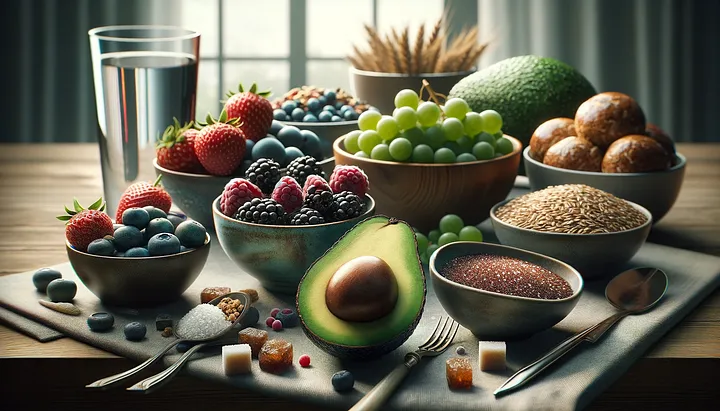In our quest for a healthy lifestyle, we’re bombarded with conflicting information about food and nutrition. Fad diets promise quick fixes, Read More
Myth #1: All Calories Are Created Equal Truth: While calorie counting can be a helpful tool for weight management, not all calories are created equal. A calorie from a sugary donut provides little nutritional value compared to a calorie from a nutrient-dense apple. Focus on consuming whole, unprocessed foods that offer essential vitamins, minerals, and fiber alongside calories. Myth #2: Carbs Are the Enemy Truth: Carbohydrates are an essential source of energy for our bodies. Complex carbohydrates, found in whole grains, fruits, and vegetables, provide sustained energy and essential nutrients. However, refined carbohydrates like white bread, pastries, and sugary drinks can lead to blood sugar spikes and crashes, leaving you feeling tired and hungry. Myth #3: Fat Makes You Fat Truth: Healthy fats are crucial for our bodies. They play a vital role in hormone production, cell function, and nutrient absorption. Sources like avocados, nuts, seeds, and olive oil provide essential fats and can even aid in satiety, helping you feel fuller for longer. Myth #4: You Need a Detox Diet to Cleanse Your Body Truth: Our bodies have built-in detoxification systems – our liver and kidneys. While certain foods might support these organs, there’s no scientific evidence to suggest that detox diets are necessary or effective for healthy individuals. Focus on a balanced diet rich in fruits, vegetables, and whole grains to support your body’s natural detoxification processes. Myth #5: Skipping Meals Helps with Weight Loss Truth: Skipping meals can actually hinder your weight loss efforts. It can slow down your metabolism and lead to overeating later in the day. Aim for regular meals and healthy snacks throughout the day to keep your metabolism fueled and prevent excessive hunger pangs. Myth #6: Eating Late at Night Causes Weight Gain Truth: Weight gain is more about total calorie intake than the timing of your meals. However, eating too close to bedtime can disrupt your sleep cycle. Aim for a balanced dinner a few hours before bedtime and prioritize sleep for overall health and weight management. Myth #7: All Sugar is Equal Truth: While added sugars are best limited, naturally occurring sugars found in fruits and dairy products contain beneficial nutrients like fiber and vitamins. However, be mindful of processed foods and drinks laden with added sugars, which can contribute to weight gain and other health problems. Myth #8: Gluten-Free is Always Healthier Truth: Unless you have celiac disease or gluten sensitivity, there’s no health benefit to a gluten-free diet. Gluten itself isn’t inherently unhealthy. Focus on a balanced diet that includes whole grains, fruits, vegetables, and lean protein sources, regardless of gluten content. Myth #9: Organic Food is Always Better Truth: While organic produce may be free of synthetic pesticides and fertilizers, conventional varieties can still be part of a healthy diet. When possible, choose fruits and vegetables with thicker skins you can peel to minimize pesticide exposure. Prioritize affordability and focus on incorporating a variety of fruits and vegetables into your diet, regardless of their organic status. Myth #10: Supplements Can Replace a Balanced Diet Truth: A healthy diet should be your primary source of nutrients. While supplements can be beneficial in certain cases, consult a doctor before taking any supplements to ensure they’re safe and appropriate for your individual needs. By understanding and debunking these common nutrition myths, you can make informed choices about your diet and embark on a healthy and sustainable journey towards optimal well-being. Remember, there’s no one-size-fits-all approach to nutrition. Focus on incorporating a variety of nutrient-dense foods, listen to your body’s cues, and consult a healthcare professional for personalized guidance.
In our quest for a healthy lifestyle, we’re bombarded with conflicting information about food and nutrition. Fad diets promise quick fixes, Read More

